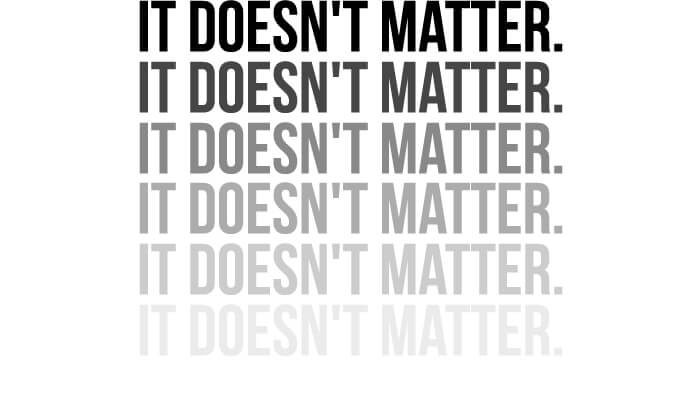Lots of people ask me things like "should I learn MVC or Web API first?" "HTML or Javascript?" "Angular or React?" etc. After all, there's only so many hours in the day, and what time we have to spend learning is often limited by other factors (energy, work policies, etc.) This leads to the most common question I get from junior programmers: What framework, stack, or language should I spend my precious time learning?
I always tell them the same thing: It. Does. Not. Matter.

It doesn't matter if you pick Angular, or ASP.NET, or Ruby, or Java. It does not matter if you want to build web sites, or IOS apps, or Windows programs. It does not matter if you're a fresh-out-of-school graduate or a 30-year programming veteran. All of these technologies, all of these platforms, will ultimately help you learn the same things, the same tried-and-true best practices. Just pick one!
Remember: you will be obsolescent someday. That will happen, especially in a business where you must continually stay on top of your own learning in order to do your job. You have a finite number of keystrokes left. Therefore you should spend your limited time learning whatever will stave off that obsolescence for as long as possible.
Concepts fight obsolescence. Even when ASP.NET inevitably dies, the concepts I've learned from programming in it for ten plus years will still be useful. Concepts have a longer shelf life than details, because details change. Languages are born and die, frameworks become unpopular overnight, companies go out of business, support will end. But the thoughts, the ideas, the best practices? They live forever.
Learn about SOLID. Learn KISS, DRY, and YAGNI. Learn how important naming is. Learn about proper spacing, functional vs object-oriented, composition vs. inheritance, polymorphism, etc. Learn soft skills like communication and estimation. Learn all the ideas that result in good code, rather than the details (syntax, limitations, environment, etc.) of the code itself. Mastering the ideas leads to your mind being able to warn you when you are writing bad code (as you will inevitably do).
Don't fret about the how. How you learn the concepts is irrelevant. It doesn't matter what framework you like, what stack you use, what technology you're currently in love with. Just pick one, learn that, master that, and remember some of the pain you had to deal with for the next project. Write a small project, post it to GitHub, blog about it. Get some experience with it! Experience is king, and nothing can substitute for real-world experience.
Code is ephemeral, concepts are eternal. Code is static; it will die, fall apart, degrade. It may take a long time, years or decades, but it will happen. But the concepts which programming lives off of do not die; they live on.
So again I pose the question: what should you spend your precious time learning?









